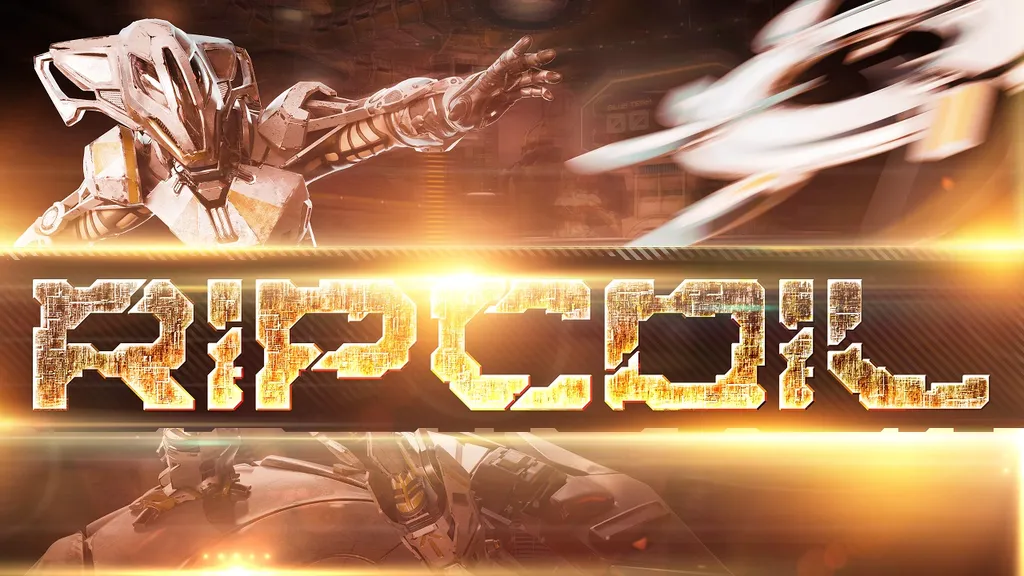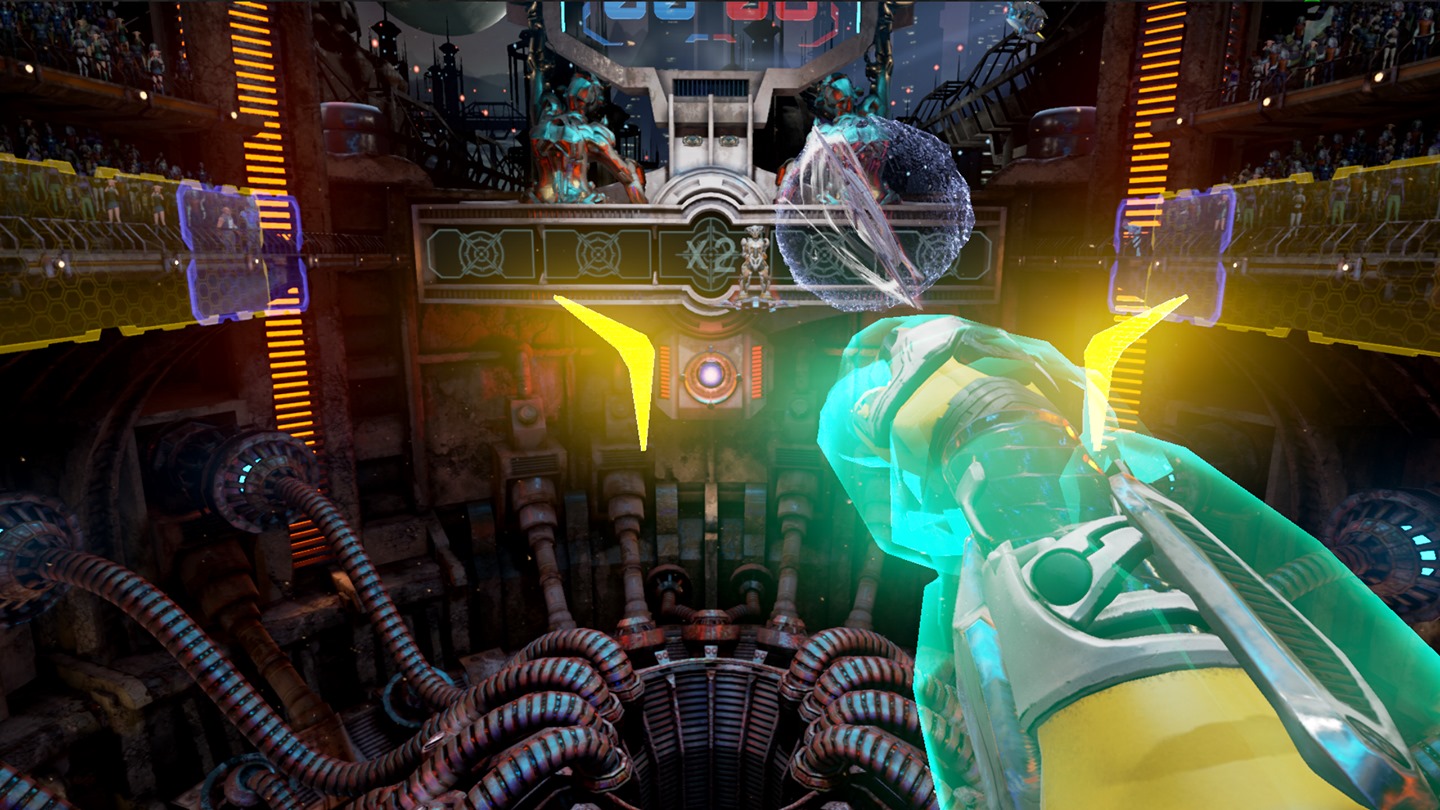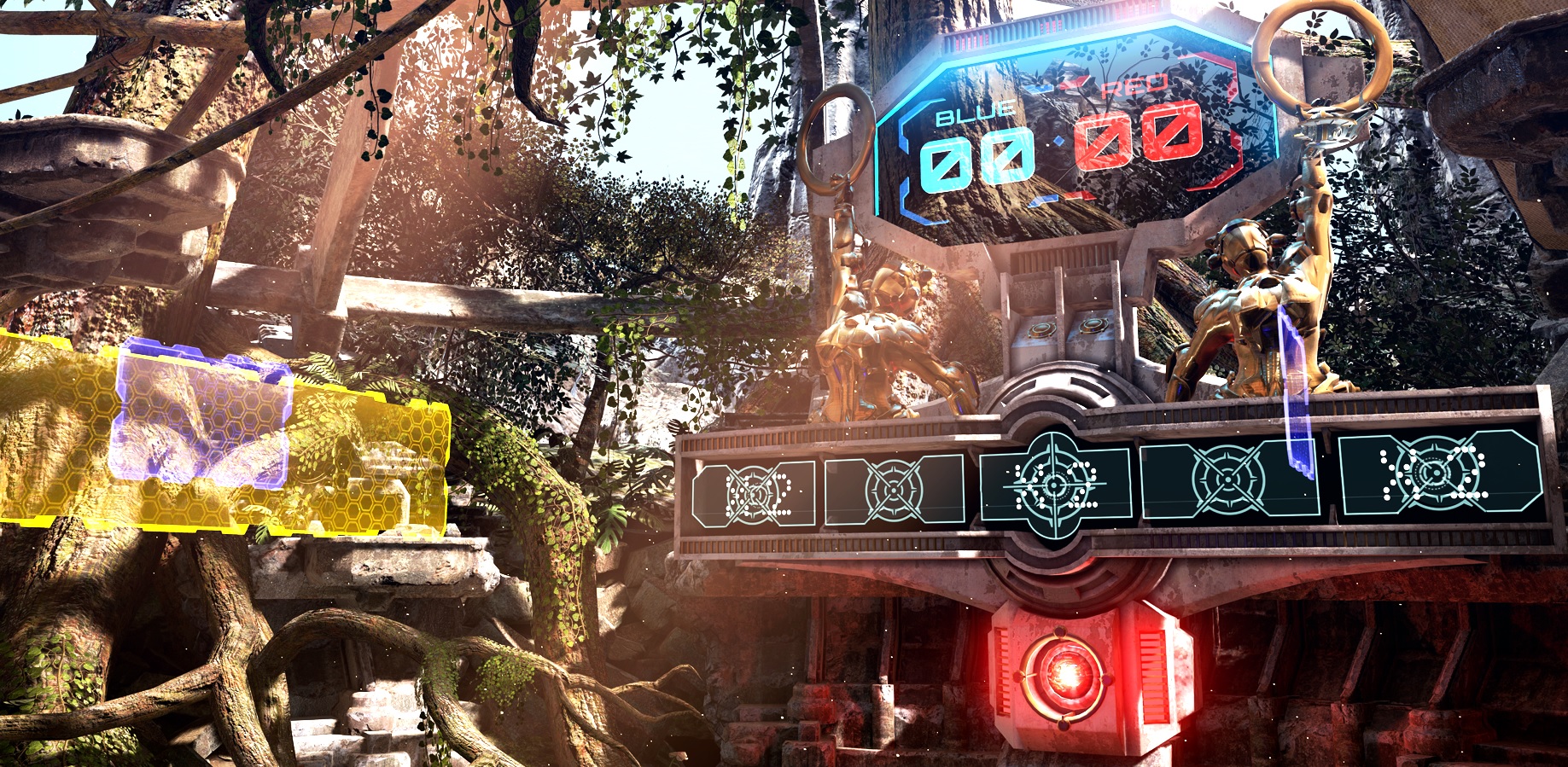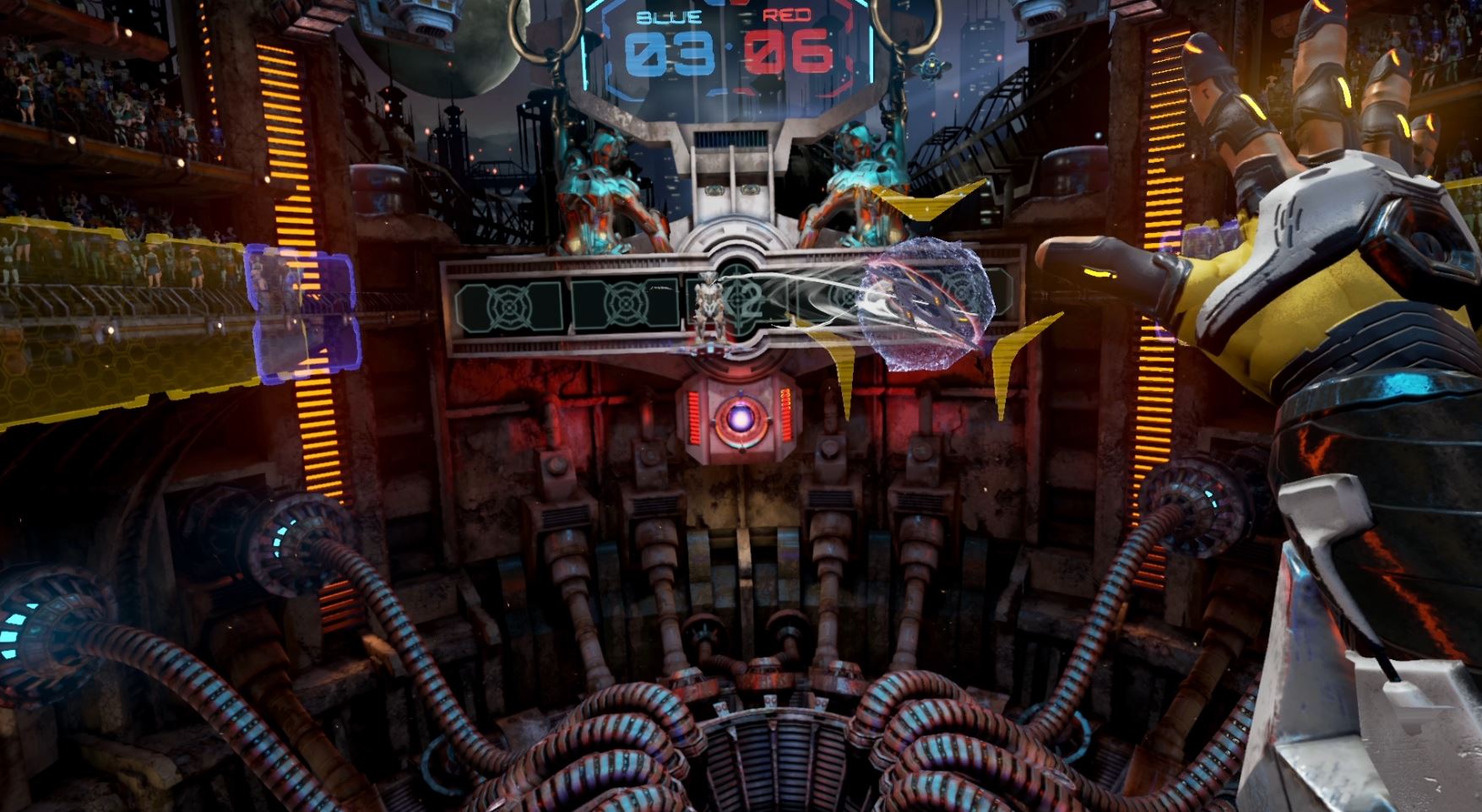I’ve never really known what it’s like to punch someone in the face. Every time I have a dream where pugilism becomes necessary — there’s only one donut left at the bakery, someone tells me that Shia Labeouf will never win an Oscar, that type of thing — I never seem to be able to land a satisfactory blow. Instead, time sort of slows down and my fist just sort of glances harmlessly off Kurt Russel’s donut-chomping jaw. Now, however, I don’t think I’ll have any trouble cleaning the anti-Labouf crowd’s collective clocks and I owe it all to my new friend Ripcoil.
Ripcoil is a competitive VR experience that combines every college freshman’s two favorite things: frisbee and punching. In the world of Ripcoil, you are an interstellar athlete clad in enough power armor to make a Fallout fan weak at the knees. The game of choice for this futuristic fanbase is a Tron-style contest in which two players use ricochets, trick shots, and power gloves to sneak a fast-moving disk past their opponent and into the goal. Each player is mounted on a sort of space age magic carpet that allows for rapid, horizontal movement.
All of this adds up to fast, energetic mechanics that create plenty of marquee competitive moments and satisfyingly enjoyable gameplay. However, a general lack of depth keeps this title from being truly great.
Ripcoil is the second VR creation from Sanazru games, the creators of VR Sports Challenge. Ironically, while VR Sports lost points in our review for the absence of any substantial multiplayer content, Ripcoil suffers from the exact opposite problem. Ripcoil is a completely multiplayer focused game that, with the exception of a limited “training’ mode, only allows for PvP competitions. This wouldn’t be an issue in and of itself — multiplayer only games like Overwatch or League of Legends are some of the most popular in existence and The Unspoken is bundled with Touch pre-orders — but where Ripcoil stumbles is in a lack of interesting features to support the online experience.
The disk duels in Ripcoil offer their players a fun, but fairly limited arsenal. Let’s start with the best of these tools: movement. Locomotion in Ripcoil happens by physically moving your head from side to side, sort of like you’re shifting your torso. As you do, the flight pad beneath your feet moves as well. This takes a bit of getting used to at first. The natural human response to an incoming laser disk is to jerk your head out of the way and this can lead to some frustrating last second misses as your instincts for self-preservation move you away from a last minute save. Once you get the hang of it, however, the sensation becomes highly immersive and surprisingly satisfying.
Once you’ve got movement down, your next mission will be throwing the futuristic frisbee itself. Sanzaru has built in a good amount of spin, loft, and angle variations you can use to score against your foe. You can use an over or underhanded throw, just like real life frisbees, and each option changes the way the disk moves toward the opposing goal. There are also different amounts of walls and bumpers to bounce the projectile off of, Pong style, depending on which of the four arenas you’re playing in.
The most powerful arrow in the Ripcoil quiver is a super-powered punch that you charge by holding down the trigger buttons on your Oculus Touch controllers. Once charged, you’ll be able to strike the disk as it moves toward you and send it hurtling away at remarkable speeds. The power shot can be difficult to deal with at first but, like most of the features in Ripcoil, loses its initial challenge rather quickly.
The first few games you play in Ripcoil you feel lucky just to snag the frisbee before it hits your goal. But after a dozen or so matches, even the most well-placed power shot can be snagged with the right amount of focus. This isn’t to say that the game ever truly loses its overall sense of fun, but the skill cap and play variation wears off much more quickly than it should for a competitive online experience. There just aren’t enough ways to play in order to elevate Ripcoil into the upper echelon of strategic minded VR multiplayer games like Onward or The Unspoken. In fact, The Unspoken is a bundled with all Touch pre-orders, and offers significantly more variety.
That being said, the limited structure that Sanzaru has put in place is undeniably fun. Ripcoil definitely has that “just one more game” aspect down pat. The matches are quick enough, and addictive enough, to keep you wanting to go again the moment the final goal is scored. A well-timed save or perfectly placed shot never fails to feel satisfying, but there just aren’t enough ways to construct those moments as the games wear on.
Ripcoil is an immensely fun and visually impressive VR experience. However, in an industry where one of the most significant commodities is users for multiplayer experiences, there just isn’t enough here to stand out in an increasingly competitive landscape. If you’ve got a few friends in mind to play with, it’s certainly worth picking up, but don’t expect the servers to be overflowing outside of the launch window if you grab this on a late-night whim.
Ripcoil is available for the Oculus Rift with Touch from the Oculus Home Store for $9.99. Read our Game Review Guidelines for more information on how we arrived at this score.





























